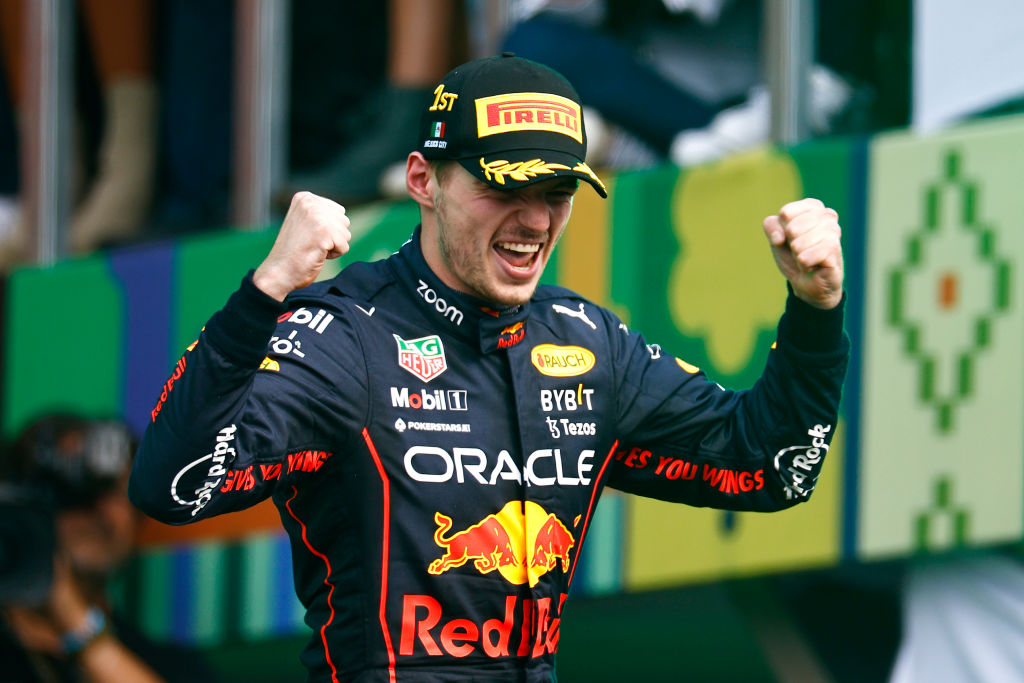Formula 1 driver Max Verstappen’s record season in numbers

He’s sprinkled some fluorescent orange Dutch dust onto this year’s Formula 1 season and Max Verstappen’s reward is a new record for the history books.
Verstappen is not the first double world champion, nor the first back-to-back champion, but he is the first to win 14 races in a season.
The 25-year-old Red Bull Racing driver has reached that tally from 20 races thus far in the championship, more than Lewis Hamilton’s 2018 and 2019 seasons – where he won 11 out of 21– and topping his previous best of 10 wins in 22 races last year.
Behind Verstappen in the races won standings are German pair Michael Schumacher and Sebastian Vettel.
Verstappen on top?
Schumacher’s best year saw him win 13 races in 2004’s 18-race season while Vettel’s 2013 season saw him win the same number of races but in a 19-Grands Prix calendar.
So Verstappen has won the most races in a calendar season and there’s still two to go, but the seasons are longer now than they were then.
Verstappen is currently on a 70 per cent win rate for the 2022 season, which is joint third with Jim Clark’s 1963 season, when the Brit won seven out of his 10 races that year.
Ahead of those two are Schmacher’s 2004 campaign, in which the German had a 72.22 per cent win rate, and Alberto Ascari’s 1952 season where the Italian’s six wins in eight races amounted to a win rate of 75 per cent.
Records are there to be broken, however, and Verstappen has the opportunity to win 16 races in this year’s 22-Grands Prix calendar, which would put him on a win rate of 72.72 per cent, the second greatest of all time.
Division
It’s a shame, then, that Verstappen’s presence on the Formula 1 circuit has somewhat divided fans.
Last year’s season finale was shrouded in controversy given the decisions that handed the Dutchman his first world title and this year hasn’t been without its own war of words.
Red Bull were found guilty of breaching the budget cap last year and were last week fined £6.2m, as well as being handed an enforced reduction of time allotted for honing the aerodynamic capacity of their car.
McLaren, Mercedes and Ferrari have all complained about the breach and the severity of the punishment, with some suggesting the consequences should have included a restriction on their next budget amount.
But such was Red Bull’s dominance on Sunday in Mexico, and in countless other Grands Prix this year, that the benefit some have suggested the team gained per lap – one tenth of a second – would have still seen Verstappen pick up top spot in the Mexican capital.
Compare?
It’s difficult to compare Verstappen’s two titles due to the circumstances in which each was won; one was controversial, the other less so.
But this year has proven beyond doubt to those who were yet to be convinced that the Dutchman is a world class driver and is deserving of his second championship.
How many titles he goes on to win remains a mystery but it’s never simple in the world of Formula 1 – and the next raging argument is always around the corner. He’s just unlucky the two most recent major ones have involved him by proxy.